Il Seminario
Panoramica
Il Seminario, dedicato esclusivamente agli young change-maker, offre conferenze di esperti, workshop partecipativi, sessioni di brainstorming, gruppi di lavoro e attività culturali. Si articola intorno a tre principali filoni tematici:
1. Geopolitica e leadership;
2. Good governance, policy making e cittadinanza;
3. Narrazioni culturali.
I gruppi di lavoro, una parte importante della peculiare metodologia del Summit, sono guidati da un team di esperti della regione, con esperienza in diversi settori. Accompagnano i partecipanti in un processo di facilitazione ideato per creare uno spazio sicuro e favorire un dialogo aperto, per portare le discussioni a un livello profondo e per individuare le idee da elaborare durante il Summite oltre.
Inbal, Israel
Marta, Italy
Majd, Palestinian Territories
Hatim, Morocco
Khadija, Morocco
Programma 2023
Il seminario era dedicato principalmente ai giovani partecipanti al Summit, ad eccezione della proiezione del film Climbing Iran, che era gratuita e aperta al pubblico.
Relatori 2023
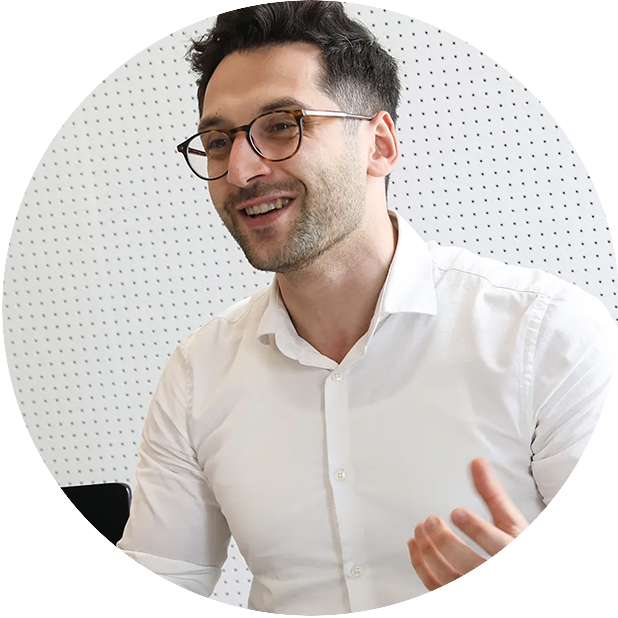
ZAKARIA AL SHMALY
Doctoral Fellow, United Nations University Maastricht
Zakaria Al Shmaly is a Syrian academic who researches the intersection between governance and technology, with a focus on European asylum policy. He worked in Europe and the Middle East with humanitarian and international organisations such as the International NGO Safety Organisation (INSO), Norwegian Refugee Council (NRC), and the European Parliament. He holds a B.A. in Liberal Arts and Sciences from the University College Freiburg, an M.A. from the European University Institute, and is currently a Dahrendorf Fellow at Oxford University – St. Antony’s College and a Doctoral Fellow at the United Nations University – Maastricht Economic and Social Research Institute on Innovation and Technology (UNU-MERIT). Zak is also a musician and a political theatre
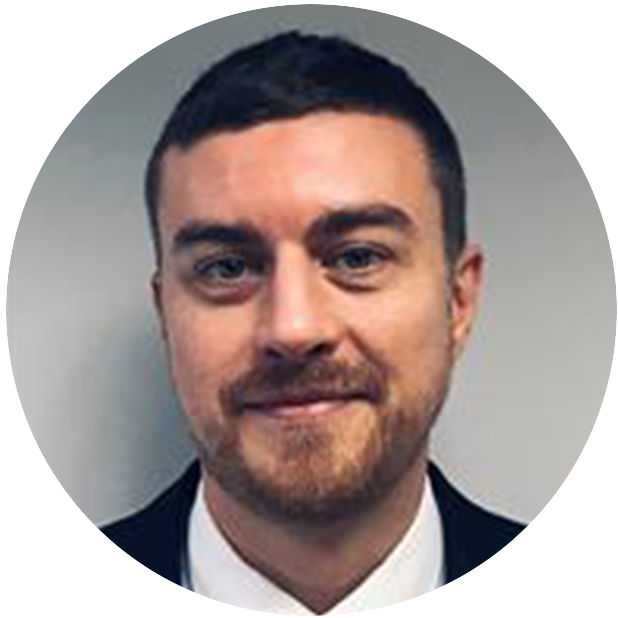
MIKE AMMANN
Regional Coordinator for the Arabian Peninsula and Iran, MENA Division, Federal Department of Foreign Affairs
Mike Ammann is the FDFA’s Regional Coordinator for the Arabian Peninsula and Iran. With a background in banking and having worked for a London-based non-profit organization, Mike Ammann joined the FDFA in 2008 as a diplomatic trainee. In 2009, he began his service as a diplomatic officer in the Division for the United Nations and other International Organizations in Bern. He then served as First Secretary at the Embassy of Switzerland in Italy in Rome (2012-2015), as Deputy Head of Mission at the Embassy of Switzerland in Greece in Athens (2015-2019) and as Counsellor at the Permanent Mission of Switzerland to the United Nations in New York (2019-2022), in charge of international law, human rights, management and finance, elections, candidacies and communications.
Mike Ammann holds a Master’s degree from the Graduate Institute in Geneva and from SOAS, University of London, in international studies and diplomacy, with a focus on Middle East politics.
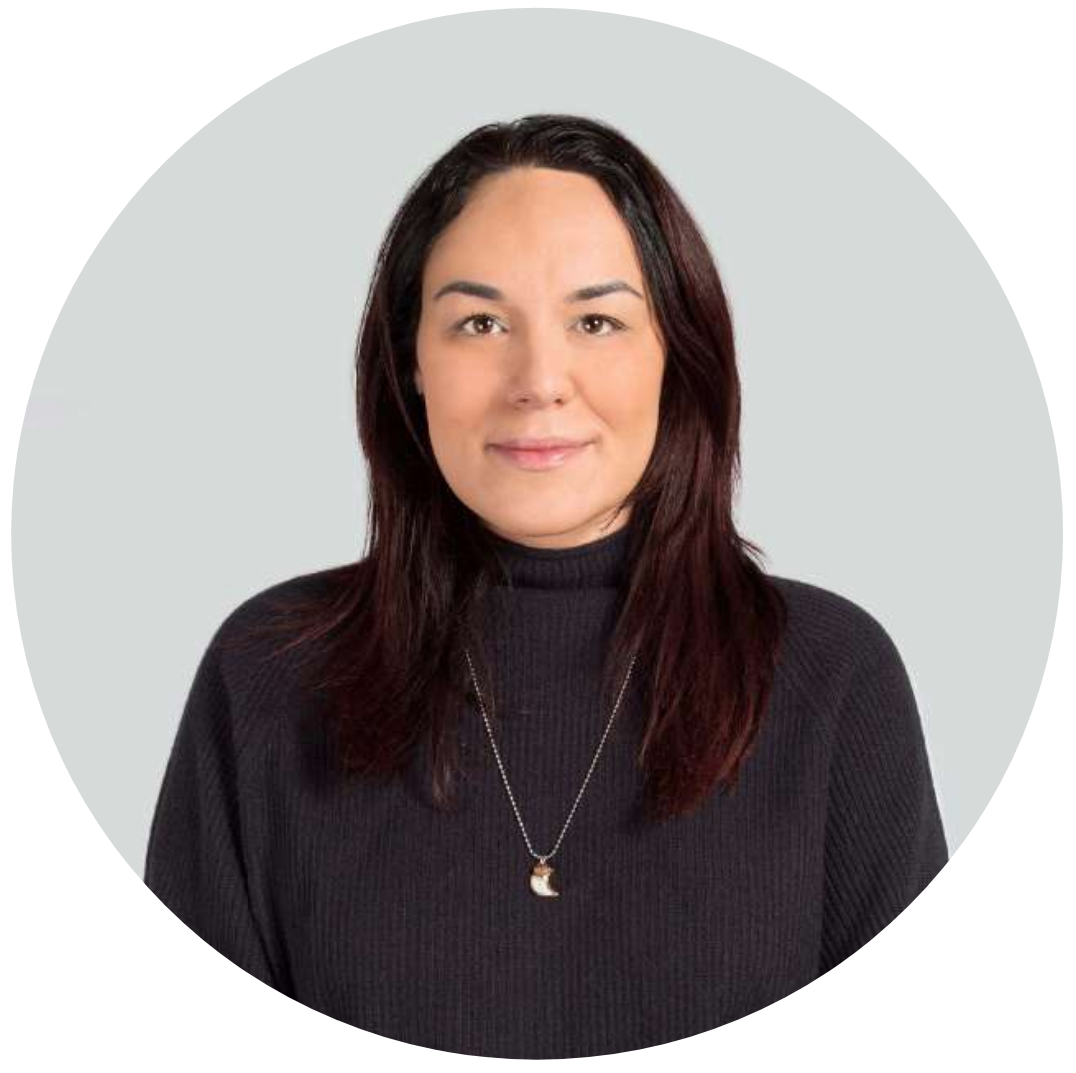
MANUELA BARRECA
Lecturer and Researcher, Università della Svizzera italiana
Dr. Barreca is a researcher and senior lecturer at Università della Svizzera italiana (USI, Lugano). She is actively involved in the organization for the master’s program in Public Management and Policy (PMP), where she teaches in several courses. Her teaching experience is mainly on public management and governance, with a focus on strategy for local government, HRM and leadership, accountability, and social reporting and sustainability issues in the public sector. Over the years, she has been part of many international study groups, e.g., Collaborative Governance and Social Innovation for the European Group of Public Administration (EGPA) and Social Innovation, Commons, and Administration for the International Institute of Administrative Science (IIAS). In the last few years, she has developed a strong interest in developing digital learning and teaching skills. She represents USI in the IASIA project e-Learning collaborating platform. She is involved in several international projects: DEeP-GOV – Digital Education Partnership for Effective and Sustainable Governance, funded by Swiss swissuniversities within Switzerland and the MENA region; a Cross-border project, funded by the European Union “INTERREG Switzerland and Italy” on strengthening territorial governance.
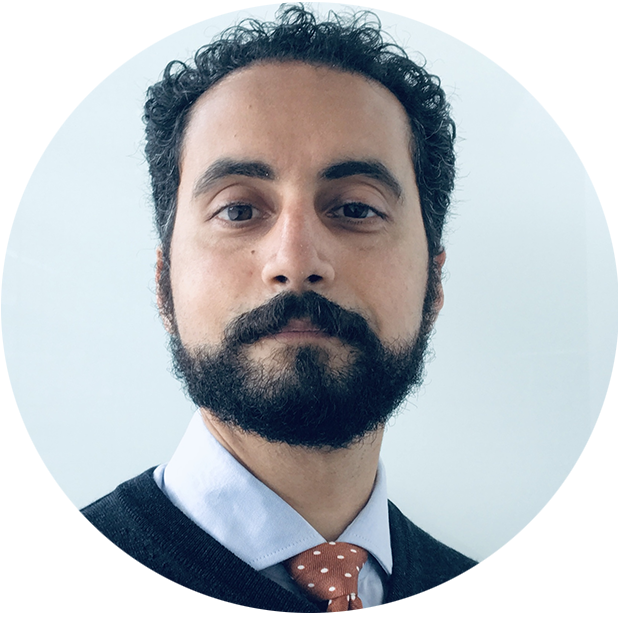
SOUHAIL BELHADJ KLAZ
Lecturer, Graduate Institute of international and development studies
Souhail Belhadj Klaz, researcher and visiting professor in the Master in International and Development Studies (MINT-Graduate Institute), holds a PhD in Political Science at Sciences Po Paris. He benefits from 20 years of experience in research on politics in Syria and Tunisia and is the author of the book La Syrie de Bashar al-Asad. Anatomie d’un régime autoritaire (Belin 2013). He is currently the leading investigator of the policy research project Mapping Military and Security Actors in the Syrian Economy and is conducting in parallel research on Migration, Mobility and the Euro-Mediterranean Partnership Cooperation Process.
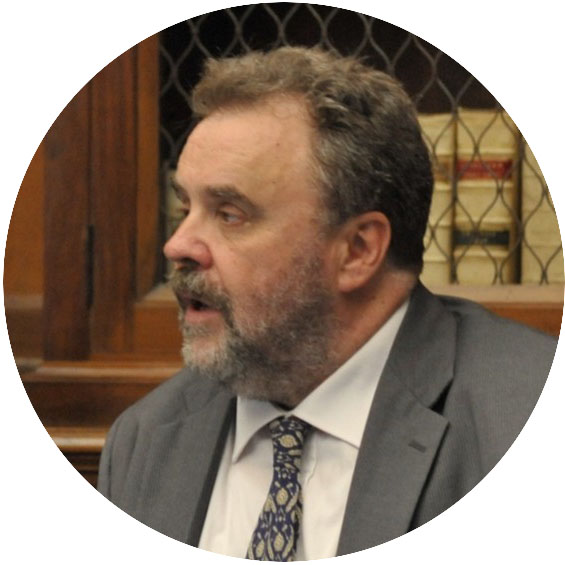
MICHELE BERNARDINI
Professor, Università L’Orientale di Napoli
Michele Bernardini is full professor of Persian Language and Literature and History of Iran and the Ottoman Empire at the University of Naples “L’Orientale”. From 2016 to 2019 he was the director of the Department Asia, Africa and the Mediterranean in this University. He is the editor in chief of the journal Eurasian Studies, jointly published by the Istituto per l’Oriente in Rome and the University of Halle-Wittenberg. Member of the scientific committee of the Series Catalogorum, devoted to the cataloguing of unknown manuscripts collections in Arabic writing, he published, together with Roberto Tottoli in 2011 the Catalogue of the Kahle Collection in Turin.
Among is main interests there is the Turco-Persian relations in the pre-modern and modern times. He published various monographies on this subject as Storia del mondo islamico (VII-XVI secolo), II. Il mondo iranico e turco, Turin, 2003; Mémoire et propagande à l’époque timouride, Paris, 2008 ; Together with Donatella Guida, I Mongoli. Espansione, imperi, eredità, Turin, 2012 and Tamerlano, Rome, 2022. He is the President of the committee for the International Congresses of Turkish Art, and in 2015 he promoted the 15th International Congress of Turkish Art in Naples. Recently he participated to a European project “Justice” on Jihadism and Prison, whose results were published in the volume edited by him and Ersilia Francesca, Jihadismo e carere in Italia. Analisi, strategie e pratiche di gestione tra sicurezza e diritti, Rome 2021.
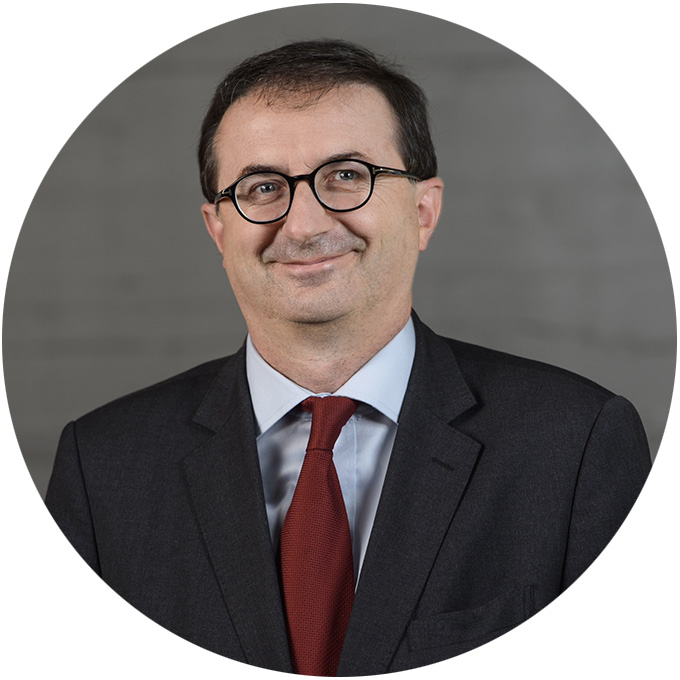
WOLFGANG A. BRÜLHART
Ambassador, Swiss Special Envoy MENA Division, Federal Department of Foreign Affairs (FDFA)
Ambassador Wolfgang Amadeus Brülhart serves as Swiss Special Envoy MENA since February 2022. Previously, he was Head of the Swiss Mission to the Organisation for Security and Co-operation in Europe (OSCE), to the United Nations and other International Organisations in Vienna. From 2012 until 2019, he was Assistant State Secretary and Director of the Middle East and North Africa Division (with the title of ambassador) at the Swiss Federal Ministry of Foreign Affairs in Berne (Federal Department of Foreign Affairs FDFA in Bern). Between 2008 and 2012, he served as Swiss Ambassador to the United Arab Emirates, and from 2003 until 2007 he was Head of the Human Rights Policy Section and Head of the Task Force “Human Rights Council” at the Swiss Department of Foreign Affairs in Berne.
Ambassador Brülhart was always committed to culture and its role in peace processes, as his assignments as Cultural Counsellor at the Swiss Embassies in London (1999-2002) and Sarajevo (1996-1998) testify. At the beginning of his career, he worked as Private Secretary to the former Swiss President, Swiss Minister of Foreign and former Swiss Minister of Home Affairs, Flavio Cotti, and served as Head of Studies and Planning for the General Secretariat of the Christian Democratic Party of Switzerland.
Ambassador Brülhart attended “Mediation and Negotiation Courses” at the UN and at the Swiss Ministry of Foreign Affairs. In 2016, he was facilitator, during a 14-months negotiations period, between US and Iran on the exchange of prisoners, and in the same year he was recipient of the “Honorary Heart of Sarajevo Award” from the Sarajevo Film Festival, for his “cultural achievements in 1996-1998” in Bosnia and Herzegovina.
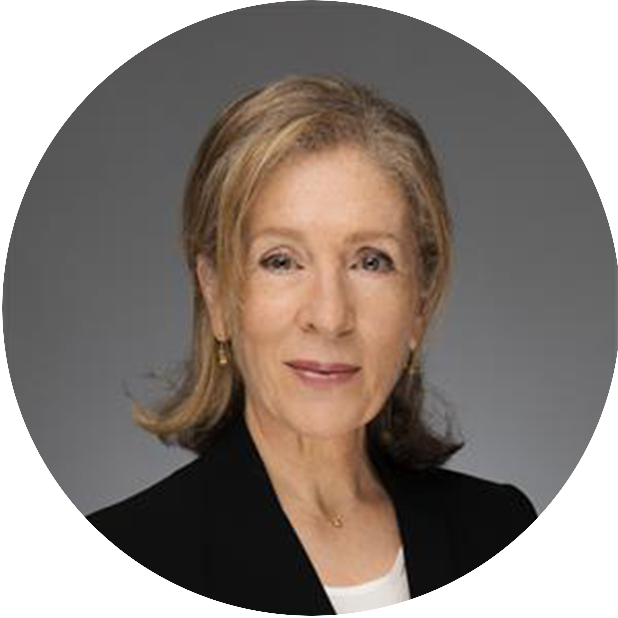
YASMINE CHATILA ZWAHLEN
Ambassador of Switzerland to Saudi Arabia
Ambassador Yasmine Chatila Zwahlen is serving as the first female Ambassador to the Kingdom of Saudi Arabia. She joined the Swiss diplomatic service in 1994, has developed her diplomatic career on five continents and is serving as Ambassador since 2012.
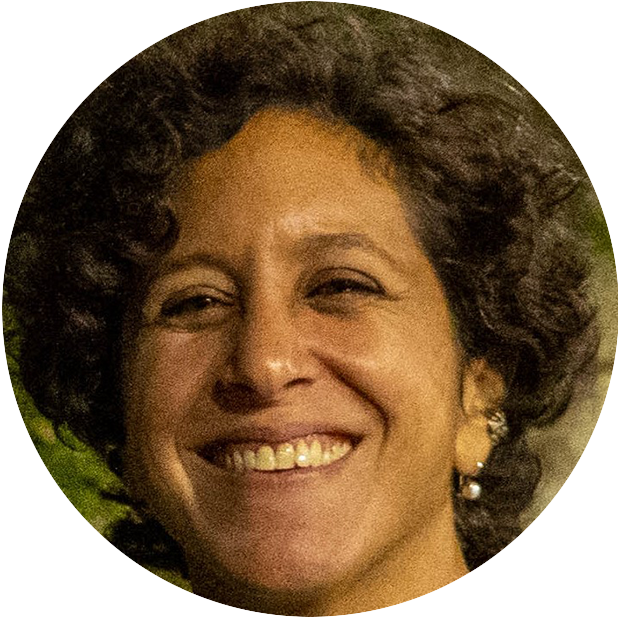
DALIA DAWOUD
Head of Pro Helvetia Cairo
Dalia Dawoud, from Egypt, holds the position of Head of Pro Helvetia Cairo responsible for exchange between the Swiss arts and cultural scene and counterpart in the Arab region countries. Previously, Dalia worked as Policy Officer, Culture and Development at the Embassy of the Kingdom of the Netherlands, Cairo (Egypt). She managed the Regional Institutional Support Programme ‘Abbara’, and the exchange program between European and Arab artists and culture managers Tandem- ‘Shaml’ of the Cultural Resource Foundation (Al-Mawred Al- Thaqafy). Dalia also worked as a consultant and jury member in the Arab and European regions. Dalia co-wrote the “Scoping Study on the Independent Cultural and Creative Sector in Egypt: Film, Music, Theatre, and Urban Development and Heritage In Alexandria, Aswan, Mansoura, Minya and Port Said” for DEDI. She also worked in the field of development with local and international CSOs. She holds a bachelor’s degree in chemical engineering from Cairo University.
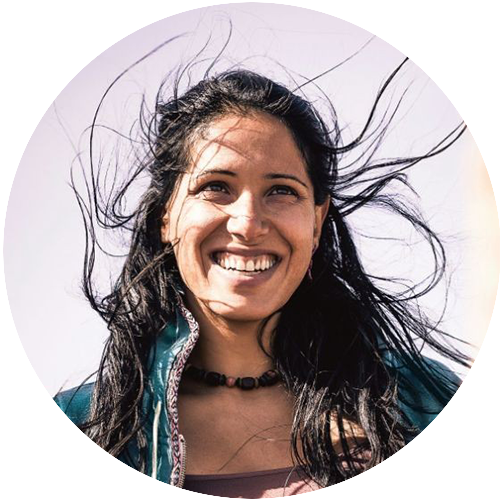
NASIM ESHQI
Iranian climber
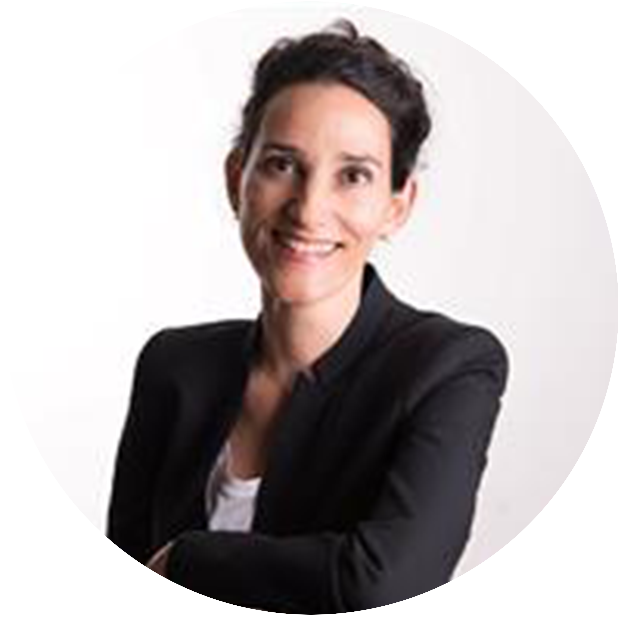
EMILIJA GEORGIEVA
Ambassador of Switzerland to Jordan and Iraq
Ambassador Emilija Georgieva started her diplomat career in 2000, and served at the Swiss OSCE Delegation in Vienna from 2001 to 2002. She continued on as Head of Communications and spokesperson at the Swiss Embassy in Washington, D.C. from 2006 to 2009 and as Deputy Chief of Mission in Singapore from 2013 to 2018. She then served as the Swiss Ambassador to the Republic of Croatia until 2022.
Georgieva graduated in 1998 from the University of Zurich (Switzerland) with a master’s degree in history and public law. Before joining the Federal Department of Foreign Affairs, Ms. Georgieva worked as a research assistant at the Center for International Security Policy at the ETH Zurich as well as in the private sector.
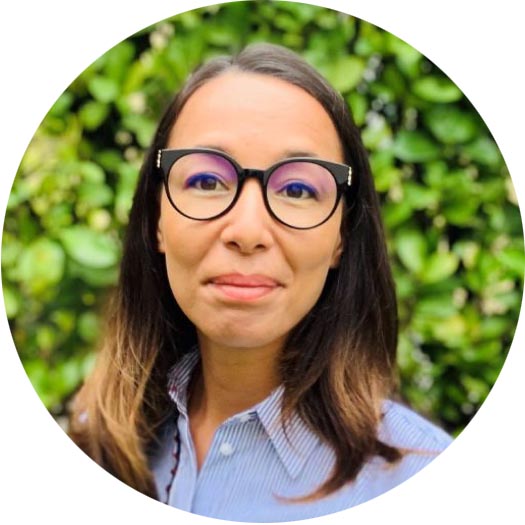
MONICA GUGOLZ
MEM Programme Manager, Università della Svizzera italiana, MEM Facilitator
Monica Gugolz graduated in 2002 with a degree in International Relations from the Graduate Institute of International Studies in Geneva. After finishing her studies, she began her career in the international field, managing development cooperation projects and consultancy mandates in emerging contexts such as Bangladesh, Rwanda and Vietnam. Monica specialised in the management and critical analysis of interventions on behalf of the United Nations, the European Union, Swiss Cooperation and NGOs, with a particular interest in issues of gender equality, women’s rights and women’s economic empowerment. In 2013, Monica co-founded a women’s cooperative in Kigali, Rwanda, which provides employment for more than 50 vulnerable women. She returned with her family to Lugano in 2017 and collaborates with the Federation of NGOs of the Swiss Italian region and the Federation of Women’s Associations of Ticino. Since 2022 Monica has been working as a Project Manager for the MEM Summer Summit.
ISMAIL LAHLOU
Programme Manager, Drosos Foundation
FILIPPO LOMBARDI
Elected Municipal of the City of Lugano
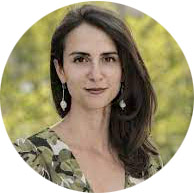
GIULIA MUGELLINI
Lecturer and Researcher, Università della Svizzera italiana
Dr. Mugellini is member of the Public Integrity Research Group (GRIP), and post-doc researcher at USI. Her expertise concerns the definition of accountability problems, the measurement of corruption, and the evaluation of anti-corruption policies. She has been involved in several international projects related to the abovementioned topics. Among the most recent ones: “Digital Education Partnership for Effective and Sustainable Governance in the MENA region” funded by swissuniversities; “Determinants of sustainable Citizen-State relationships: A survey of trust, satisfaction, and organizational deviances”, funded by the Social Sciences and Humanities Research Council of Canada, and “Assessing the nature and impact of transnational corruption through the lens of Swiss businesses”, funded by the Swiss National Science Foundation. She is lecturer of “Quantitative and Qualitative research methods in Public Administration”, and “Accountability and Corruption”, in the MA in Public Management and Policy (PMP). She also teaches about “Corruption in Public Administration” and “Market Research Techniques” in the BA of Communication and Economic Sciences.
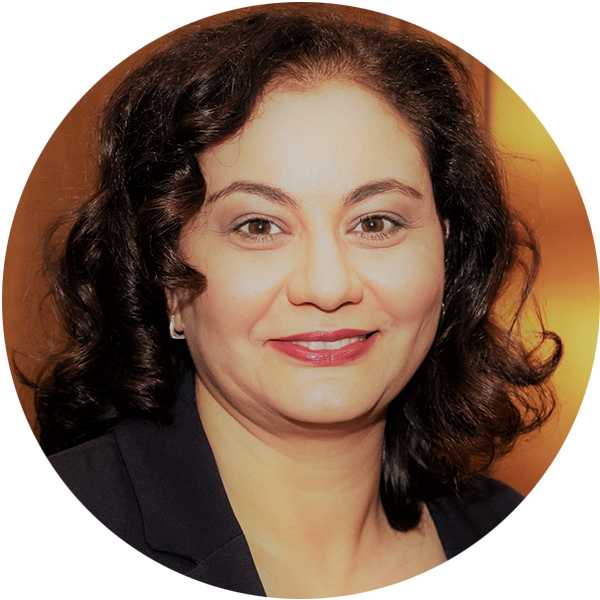
RASCHA OSMAN
Deputy Head of the MENA Division, Head of Section Northern Africa, Federal Department of Foreign Affairs (FDFA)
Rascha Osman has been Deputy Head of the MENA Division and Head of Section Northern Africa at the Swiss Federal Department of Foreign Affairs since August 2020. Prior to this position she has been posted as a Head of Cultural Affairs at the Swiss Embassy in Berlin (2016-2020) and in the Section Foreign Policy at the Swiss Mission to the European Union in Brussels from 2012 to 2015. She also served in diplomatic postings in the MENA Division from 2008 and 2012, at the Swiss Embassy in Ljubljana and in Switzerland’s Permanent Representation to the UN in NY.
Before joining the Swiss Diplomatic Service in 2007, she worked at the Swiss Federal Office for Refugees (now Swiss State Secretariat for Migration), where she was among others responsible for international migration dialogues. Rascha Osman has received her M.A. from the University of Berne and has studied English and American Literature, Political sciences and Islamic science.
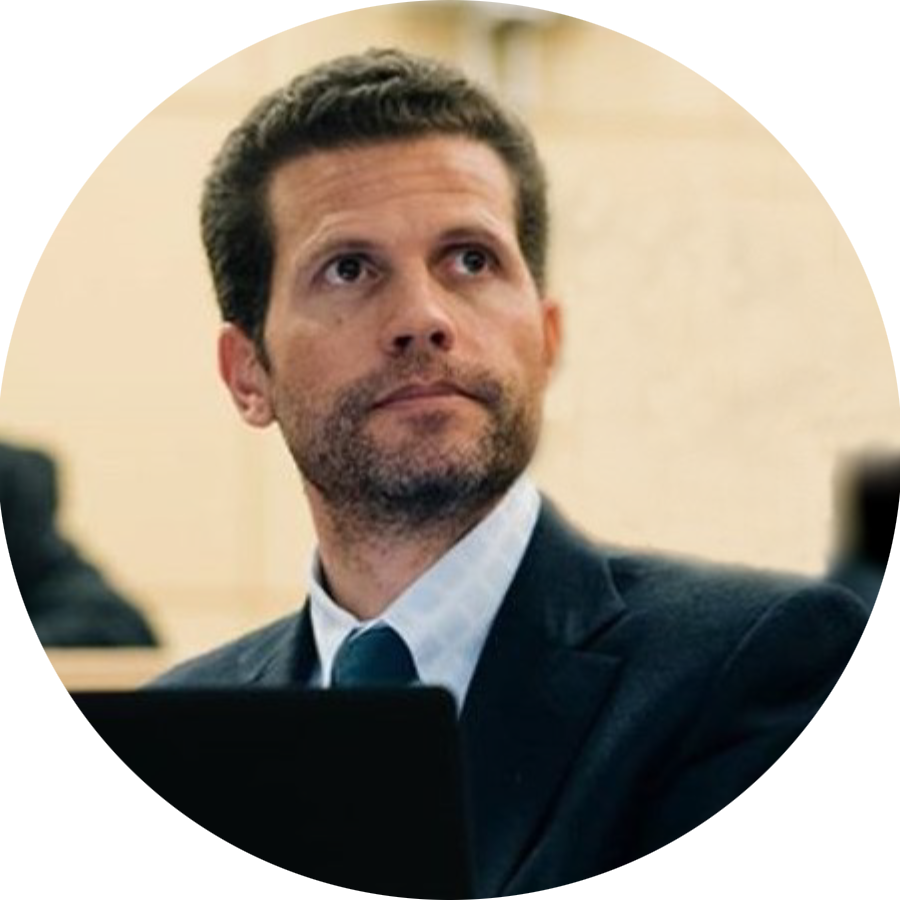
JEAN-LOUIS ROMANET
Director and Co-Founder, Northern African Policy Initiative
Jean-Louis Romanet Perroux is a researcher and advisor on international cooperation and development, and the director of the North African Policy Initiative, an NGO that focuses on improving participatory governance and building the capacity of youth in North Africa. He has over 20 years of hands-on experience in program design and implementation, in training and coaching students and activists, and in conducting action-oriented research and strategic evaluations in the fields of civil society, youth empowerment, local governance, corruption, human trafficking and smuggling, migration, and the prevention of violent extremism. He has obtained a Bachelor in Aeronautical Engineering from the Italian Air Force Academy, a master’s in political science from the University of Trieste and a master and a PhD in International Relations from the Fletcher School of Law and Diplomacy, Tufts University.
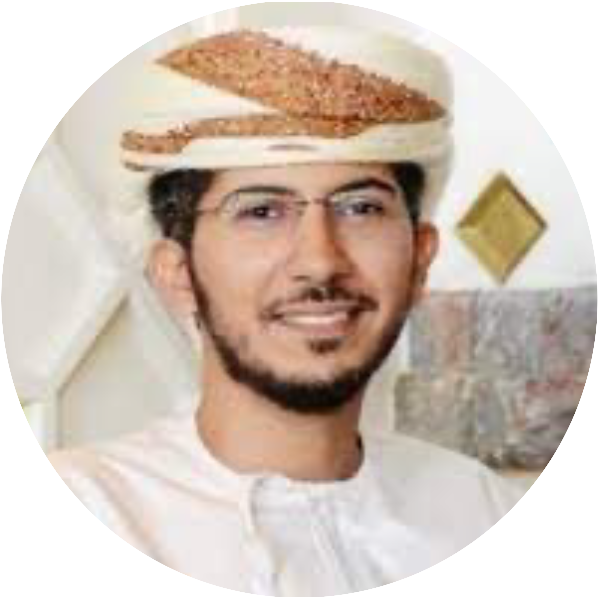
TALAL AL-AULAQI
Consultant on Energy
Dr. Talal Al-Aulaqi is from the fifth generation of the Al-Aulaqi family who moved from Yemen to Oman post the Al-Aulaqi Sultanate in 1967. His experience spans from Foreign Affairs and global diplomacy to technology advancement and education support. He is interested in supporting peace and reconciliation in Yemen and in supporting Oman’s diplomacy in the region.
Previously, Al-Aulaqi was also involved in various policy drafting activities in Oman. He contributed to the Oman Vision 2040 in the fields of private sector, investment and international cooperation as well as natural resources and environmental sustainability. He has also supported the Ministry of Foreign Affairs in the drafting and submitting of the first national implementation plan of the Sustainable Development Goals, with a focus on energy efficiency related topics. Moreover, he has worked with supreme council of planning on the tenth five-year plan, with a focus on economic diversification.
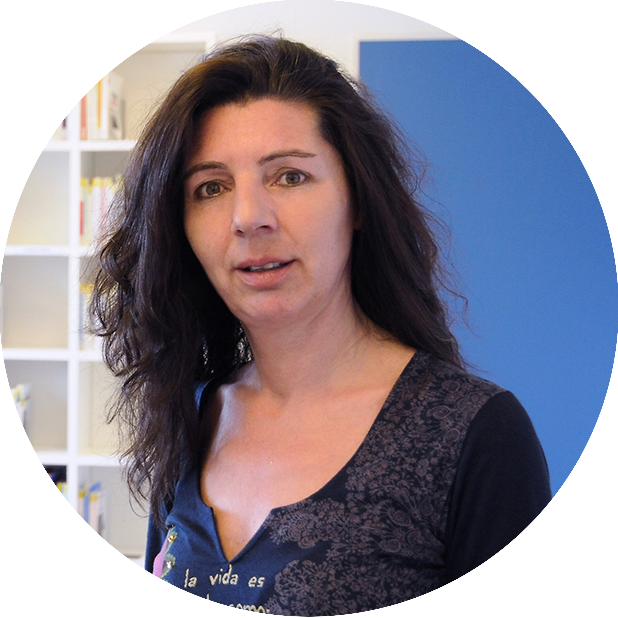
PAOLA SOLCÀ
Professor, University of Applied Sciences and Arts of Southern Switzerland
She obtained her license in Sociology and Anthropology, Faculty of Social and Political Sciences, at the University of Lausanne in 1994.
Professional experience: She is a senior lecturer-researcher at the Department of Business Economics, Health and Social Sciences. Her teaching and research activities focus on migration, human mobility, development and cooperation. From 2012 to September 2020, she was Head of the Centre for Documentation and Migration Research (CDRM). She cooperates with the Certificate of Advanced Studies Cooperation and Development and is a member of the SUPSI Cooperation and Development Competence Centre. She is also responsible for the mobility of students and teachers in Social Work. Since 1 October 2020, she has been the Head of the Bachelor in Social Work.
Scientific competences related to specific areas of migration and international cooperation. Methodological competences (qualitative and quantitative analysis, participatory approaches).
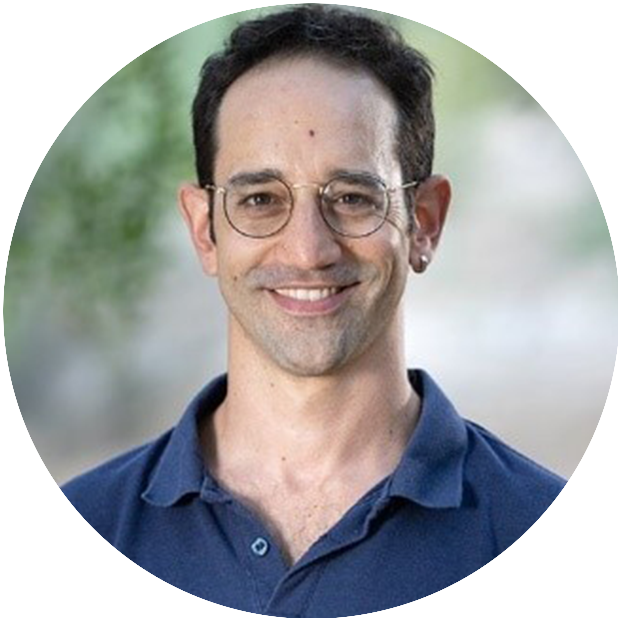
TOM VIZEL
CEO, MENA Network, MEM Facilitator
Tom Vizel is a dedicated youth leader and education professional, currently serving as the Director of Education for NOAL (The General Federation of Working and Studying Youth), Israel’s largest and most diverse youth organisation. With a membership of 90,000, including Jewish and Arab members from all parts of Israeli society, NOAL plays a vital role in shaping the next generation of leaders.
In addition to his work with NOAL, Tom is also the Director of the ‘Youth for Middle East and North Africa’ initiative (Y4MENA) that works to bring together tens of thousands of young people from the MENA countries for encounters that promote mutual understanding, inclusiveness, and peace.
Tom holds a bachelor’s degree in non-formal education from Beit Berl College, a masters degree in Education Management and is an alumni of the Mandel Leadership Institute.
He brings a wealth of knowledge, experience, and passion to his work and is committed to fostering a more sustainable society through education and youth engagement.
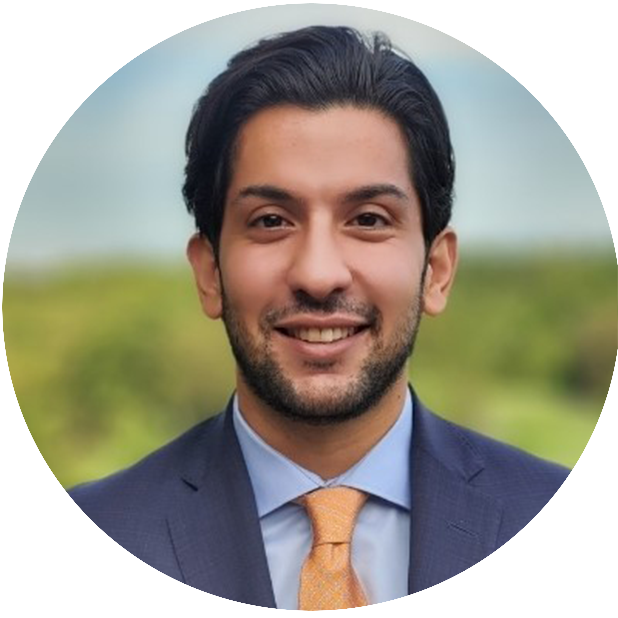
YOUNES ZANGIABADI
Deputy Director, Institute for Peace and Diplomacy, MEM Facilitator
Younes Zangiabadi is the Deputy Director and founding member of the Institute For Peace & Diplomacy (IPD) where he plays a leadership role in shaping the organisation’s mission, vision, and development strategy.
He directs the Middle East program and oversees a team of researchers conducting in-depth policy research and convening high-level briefings including track 1.5 dialogues on strategic challenges facing the Middle East region. Younes is also the lead organiser of IPD’s Annual Middle East Strategy Forum (MESF), which brings together a diverse group of over 150 foreign policy and defence experts from the government, industry, academia, think tanks and media to engage in constructive discussions around the geopolitics of the Middle East in Ottawa.
Younes is a member of the Civil Society Policy Action Group (CPAG), comprised of a group of leaders in CSO stakeholders and high-level government officials in Canada with a two-year mandate to provide advice to Global Affairs Canada on the shared approach, vision, and priorities necessary to support the effective mutual implementation of the CSO Policy.
Younes holds a Master’s degree in International Affairs from the Geneva Graduate Institute in Switzerland and previously served as a Young Foreign and Security Policy fellow with the Geneva Center for Security Policy.
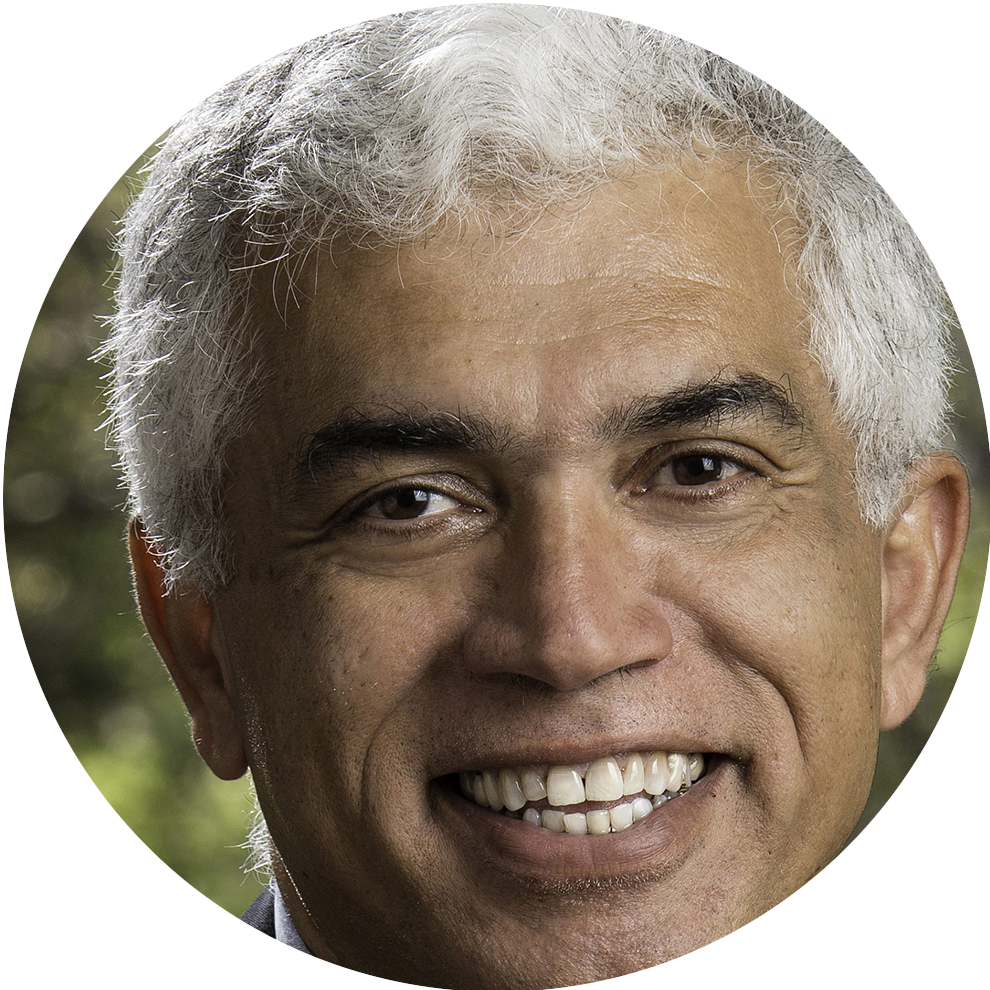
AZZAM ALWASH
Environmentalist
Dr. Azzam Alwash was born in Kut, Iraq in 1958 and left to the United States in 1978 where he completed his graduate work with a Ph.D. in Civil Engineering from the University of Southern California in 1988. He practiced in the environmental and geotechnical field for over 20 years.
He started Eden Again, a program to put the spotlight on the drying of the marshes of southern Iraq, under the auspices of the Free Iraq Foundation, where he is a member of the board of directors. After the removal of Saddam Hussien, he moved back to Iraq to work on the restoration of the marshes and founded Nature Iraq, an Iraqi NGO focusing on the preservation of the environment of Iraq and its cultural heritage. An effort that earned him the Takreem Award in 2011 and The Goldman Environmental Prize for the 2013 as well as being designated one of the 100 forward thinking leaders of the world by the Foreign Policy Group in 2013.
In 2006, and in recognition of the need of Iraq to improve its undergraduate education, he became a founding member of the board of trustees of the American University of Iraq – Sulaimani. The mission of the university is to be the builder of the future leadership of Iraq and the region through the use of the liberal arts model and allowing students that reflect the mosaic of Iraq to interact and form life long friendships not to mention honest discussion about the modern and ancient history of the region alongside a rigorous scientific curriculum and worked actively to raise funds and to build the infrastructure and educational faculty.
Dr. Alwash is the advisor to Dr. Barham Salih on Climate Change issues and produced a set of innovative ideas on how to convert Climate Change from a threat to the region to an opportunity to bring the regional powers together to address the challenges of climate change on the region through creation of cross border co dependence and cooperation.
Dr. Alwash is working now on issues of water and the environment through Nature Iraq and American University to promote the idea of cooperation on water management and making water an instrument of peace rather than the source of tension in the future middle east.
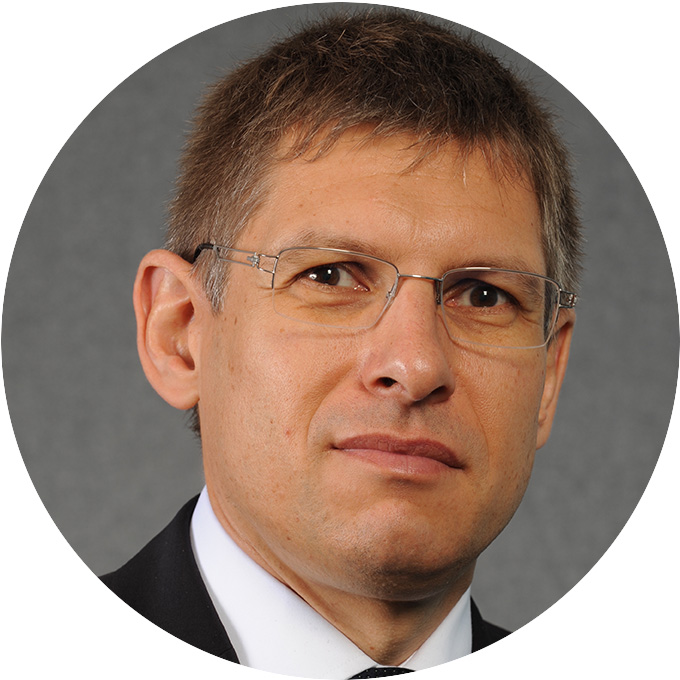
FABRICE BALANCHE
Professor, Université Lyon II
Fabrice Balanche is an associate professor at the University of Lyon in his native France. Formerly a visiting fellow at the Washington Institute for Near East Policy (2015-2017) and the Hoover Institution (2017-2018), is a political geographer specializing in the Middle East. He was previously the director of the Urban Observatory at the French Institute of the Near East in Beirut from 2003 to 2007, the director of GREMMO (Research Group on the Mediterranean and the Middle East) at the University of Lyon from 2010 to 2015. Fabrice Balanche received a doctorate in political geography from the University of Tours in 2000 and accreditation to supervise research from the University of Lyon in 2013.
He spent ten years in Lebanon and Syria, his main areas of study, since first engaging in fieldwork in the region in 1990. He was one of the first academics and observers who accurately predicted the evolution of the Syrian crisis, thanks to his deep knowledge of the Syrian society and his method of analysis.
His publications include Geopolitics of the Middle East (2014, in French), Atlas of the Near East (2011, in English, French, and Arabic), the book version of his thesis, The Alawite Region and Syrian Power (2006, in French), Sectarianism in the Syrian Civil War (2018, in English), Syria Lebanon : sectarianism and power (2022, French) and many articles on Syria and Middle East,), has been published in February 2018.
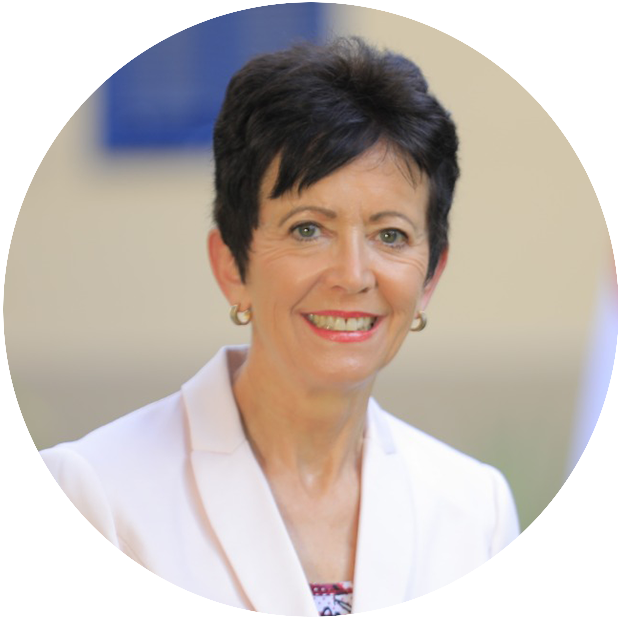
YVONNE BAUMANN
Ambassador of Switzerland to Egypt
Ambassador Yvonne Baumann joined the Swiss Federal Department of Foreign Affairs in 1991 and completed her diplomatic training in Bern and Budapest. She is serving as Ambassador of Switzerland to Egypt since 2021. Baumann studied History, German Literature and Philosophy and holds a licentiate and a doctoral degree (Dr. phil.) from the University of Zurich. From 1993 to 1996, she was assigned to the Swiss Agency for Development and Cooperation at the Foreign Ministry in Bern. She then served as Deputy Head of Mission at the Embassy of Switzerland in Venezuela until 1999. From 2000 to 2002 Baumann was a special advisor to the Swiss Foreign Minister and from 2022 to 2004 she served as Deputy Head of Mission to the Embassy of Switzerland in Mexico. By 2004 she achieved the rank of Ambassador and took on as Head of the Political Affairs Division in charge of the Americas at the Foreign Ministry in Bern where she served until the end of 2009. Since then, she was assigned as Head of Mission to Chile (2010-2014), to Indonesia, accredited as well to Timor-Leste and the Association of Southeast Asian Nations (2014-2018) and to Colombia (2018-2021).
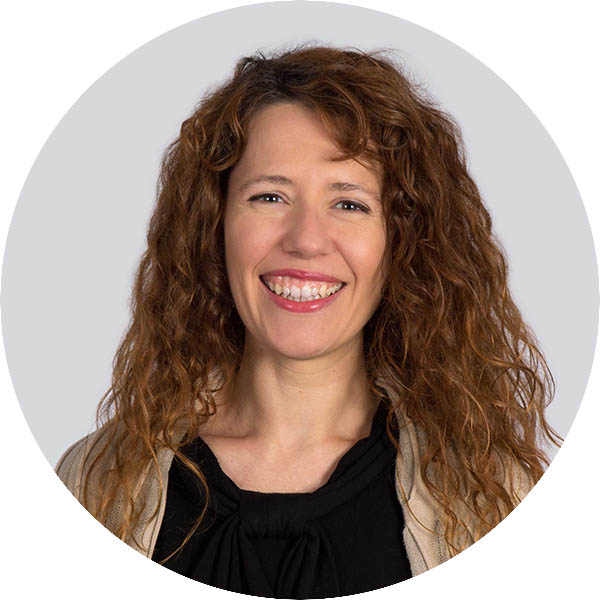
ELEONORA BENECCHI
Lecturer and Researcher, Università della Svizzera italiana
Dr. Eleonora Benecchi is maître d’enseignement et de recherche (MER) at the Institute of Media and Journalism (USI, Università della Svizzera italiana). Her main research interests include Internet fandom, participatory culture with special regard to the spreading of cultural contents through social media and media consumption practices. She published scientific articles and book chapters in these fields in top-ranked journals such as Media Culture and Society and New Media and Society. She is also head of research for projects focusing on kids and adolescents’ digital media consumption and she is currently working on the spread of problematic contents and hate speech through social media. She is also a radio journalist and has been organizing labs connected to courses of radio, cinema and documentary filmmaking for over thirteen years. Her last book “Di chi è questa storia” deals with the changes in the creation, development and distribution of “stories” in the digital age.
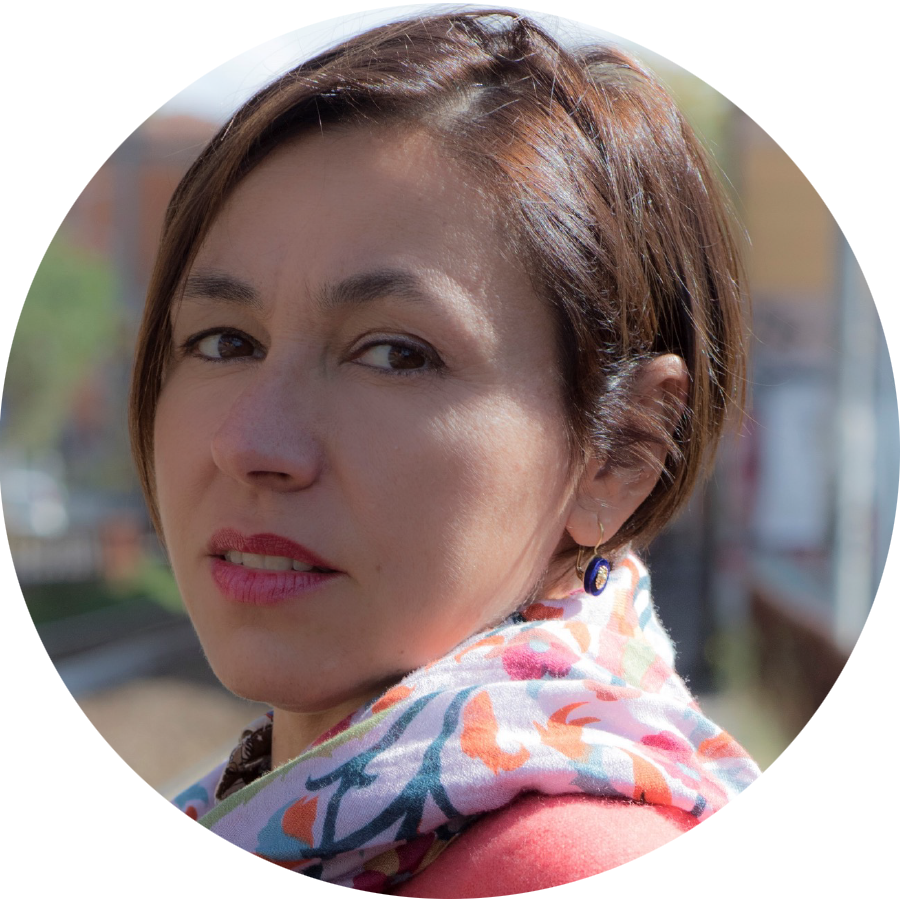
FRANCESCA BORGHETTI
Film Director
Francesca Borghetti is an author and director with more than twenty years of experience in the audiovisual field. She collaborated with independent productions and TV channels such as Rai Storia, Rai 5, Babel Tv, Rai 2 and Rai Documentari. The interest in female figures who have left an imprint on future generations has become the centre of her work starting with the documentary “Climbing Iran” which she wrote and directed starring the Iranian rock climber Nasim Eshqi rewarded with several Prize. Francesca recently switched to the podcast format with “PointeNini Women’s Mountain Stories” among the Original contents of Rai Play Sound. With the podcast series “Paladine”, “In Buone Mani” and “Ritratti di Artiste” produced by Chora Media, she proceeds to tell exemplary stories women, hidden in the folds of history. “Nasim Iran Verticale” produced by Rai Play Sound is the last stage of a journey alongside Nasim Eshqi that began many years earlier, in the salient moment in which she decided to speak “out loud”.
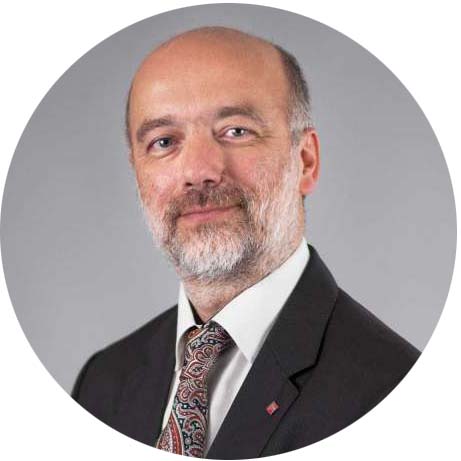
LORENZO CANTONI
Professor, Faculty of Communication, Culture and Society, Università della Svizzera italiana
Lorenzo Cantoni graduated in Philosophy and holds a PhD in Education and Linguistics. He is full professor at USI – Università della Svizzera italiana (Lugano, Switzerland), Faculty of Communication, Culture and Society, where he is director of the Institute of Digital Technologies for Communication.
His research interests are where communication, education and new media overlap, ranging from computer mediated communication to usability, from eLearning to eTourism and digital Fashion, from ICT4D to eGovernment.
He is chair-holder of the UNESCO chair in ICT to develop and promote sustainable tourism in World Heritage Sites, established at USI in 2013, and board member of WHES – World Heritage Experience Switzerland.
He is USI’s Pro-rector for Education and Students’ experience.
He is director of the Master in Digital Fashion Communication, done in collaboration with the Université Paris 1 Panthéon-Sorbonne, and director of the Master in International Tourism.
L. Cantoni has been Dean of the Faculty (2010-2014), Deputy Rector (May 2022-June 2023) and President of IFITT – International Federation for IT in Travel and Tourism (2014-January 2018).
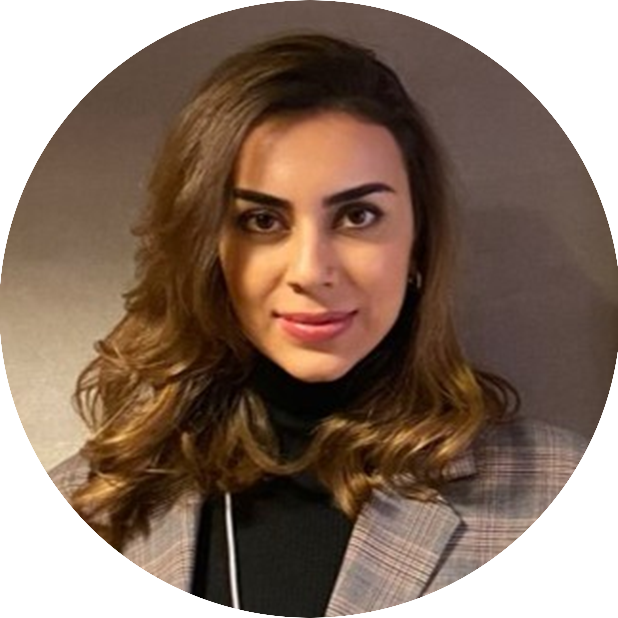
MAE ANNA CHOKR
ETH-Center for Security Studies
Mae Anna Chokr holds a Ph.D. in Politics from the University of Westminster in London. Her thesis titled ‘Tribes, Memory and Politics in Mesopotamia’ explores themes of identity, tribal heritage, and collective solidarities in Iraq as elements shaping the country’s political culture. She has taught courses on Humanitarian Intervention and Middle East Politics in London. Mae previously worked as a researcher at the Middle East Institute (MEI) in Washington D.C., as well as Future Television in Beirut. She worked in different Ministries in Beirut, Lebanon and holds an MA in International Politics from the Lebanese American University. She is also a painter and emphasises the use of universal symbols to construct stories through her work.
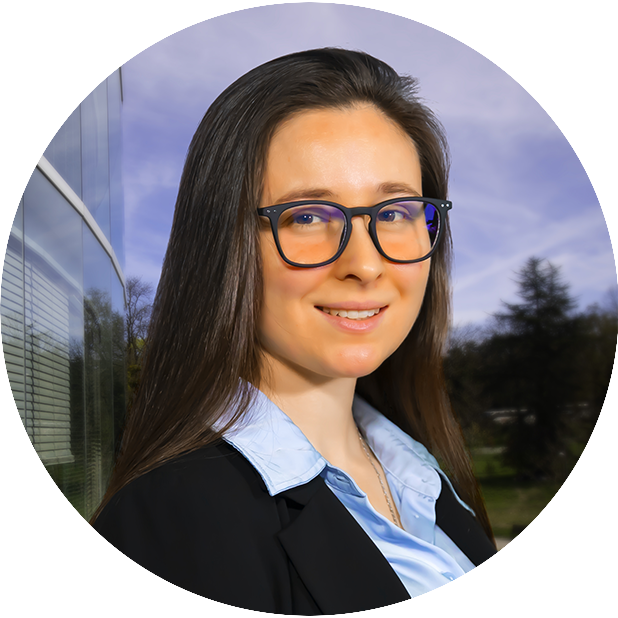
SERAINA ELDADA
Project Officer, Geneva Center of Security Policy
Seraina Eldada supports dialogue processes within the Diplomatic Dialogue unit at the Geneva Centre for Security Policy (GCSP). The GCSP facilitates inclusive, discreet dialogue to support Track 1 actors and processes, and to inform Track 2 actors (“decision shapers”) with a view to generating creative and policy oriented approaches to addressing security challenges, defusing tensions, and building trust and confidence. GCSP’s facilitation and expertise in international security issues creates a favourable atmosphere for identifying common ground and improving understanding. This can complement official talks, which tend to be more formal and less conducive to creative brainstorming. Seraina’s work includes project design, planning and coordination, monitoring and evaluation activities, research, analysis and conceptualisation of new avenues of work in various fragile and conflict settings. Seraina has a background in field-based operations and advocacy in the Middle East, Sub-Saharan Africa, South America and Europe. Previous areas of focus include frontline access negotiations, operational strategy, migration, counterterrorism and criminalization of humanitarian actors, acute health crises, and health and medical needs in armed conflict contexts. Seraina holds an MA and a BA in International Security and Diplomacy with a focus on the Middle East from Sciences Po, and a BA in Political Science and Human Rights from Columbia University.
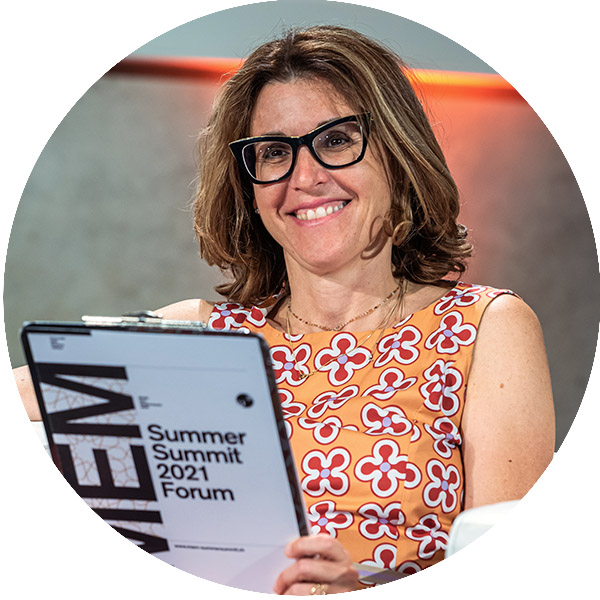
FEDERICA FREDIANI
Lecturer, MEM Project Leader, Università della Svizzera italiana
Federica Frediani, Senior researcher and lecturer at the Università della Svizzera italiana, is currently Educational Programme Manager of the Middle East Mediterranean Freethinking Platform. She is a member of the Project Committee and Project Leader of the Middle East Mediterranean Summer Summit. She holds a Ph.D. in Comparative Literature from Università di Siena. Her research interests focus mainly on representations, narratives, cultural productions and political and intercultural dynamics of the Middle East Mediterranean region. She published books and articles on travel writing. In particular the women travel literature, and on the relationships between Northern and Southern shores of the Mediterranean.
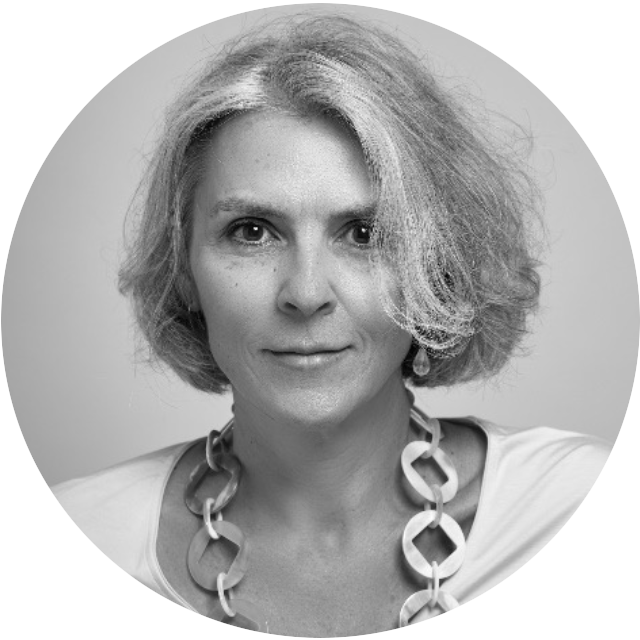
CAROLE GUERTLER
Independent consultant in sustainable development, cultural and creative economies and media
Carole Guertler is an independent consultant in sustainable development, cultural & creative economies, and media. She specialized in organisational development & capacity building, project and programme work, grantmaking and communication in the fields of philanthropy, NGO / NPO, social impact entrepreneurship and CSR. She has been trained in culture & arts, journalism and NPO management, and has been primarily working in the Mediterranean & Middle East Region as well as in Western and Southeast Europe. She is a member of the advisory boards of the research laboratory Synaps (Lebanon & Switzerland), of the socio-cultural enterprise Yaraqa (Lebanon), and of the non-profit company Sela for Training and Protection of Heritage (Jordan). She is a collaborator of Stone Soup Consulting and a member of the editorial board of the Zurich Centre for Creative Economies, a research center within the Zurich University of the Arts.
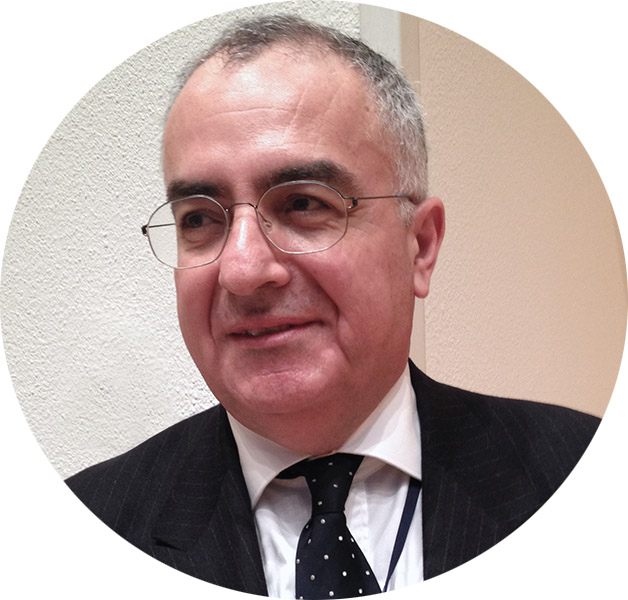
ANTOINE LAHAM
Office of the Special Envoy MENA, Federal Department of Foreign Affairs (FDFA)
Until taking up his current position in February 2022 as Deputy of the Swiss Special Envoy MENA, Antoine Laham, on secondment by the Swiss Federal Department of Foreign Affairs (FDFA) – worked in the capacity of Senior Political Affairs Officer at the Office of the UN Special Envoy for Syria in 2013. Earlier, he was the first Country Director – Lebanon for the Geneva Center for Security Sector Governance (DCAF). In the latter capacity, he was associated as Senior Advisor to the joint Berghof Foundation / UNDP Lebanon – Peace Support Office on Consensus Building, Constitutional Empowerment and Civil Peace.
From 2007 to 2011, he contributed to the set-up and organization of the Inter-Lebanese Dialogue that took place in Switzerland and Lebanon. From 1999 to 2001, Antoine – seconded by the FDFA – worked as Regional Administration East-Kosovo with the United Nations Mission in Kosovo (UNMIK) entrusted the implementation of the United Nations Security Council Resolution 1244 (1999). Previously, from 1996 to 1998, Antoine Laham – seconded by the FDFA – worked as Deputy Director for Human Rights and Democratization with the OSCE Mission in Bosnia & Herzegovina tasked with the implementation of the Dayton Agreement.
Antoine Laham holds a Diplôme d’Etudes Supérieures (DEA) in Finances, a Master degree in Economics a Bachelor degree in Sociology; a Diploma in Public Relations; and a Diploma in New Public Management from the Geneva University. He has published a number of studies covering the domain of Human Rights, Democratization, Governance and Decentralization.
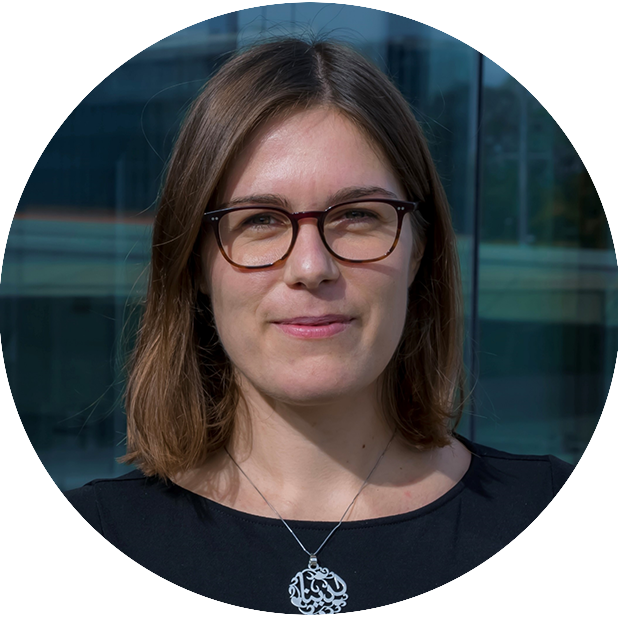
LADINA LANGE
Office of the Special Envoy MENA, Federal Department of Foreign Affairs (FDFA)
Ladina Lange has been working as an Advisor to the Swiss Special Envoy MENA at the FDFA since May 2023. Additionally, she works on the desk for Israel/Palestine at the Peace and Human Rights Division (PHRD) in Berne. Previously, she served as a Diplomatic Advisor at the Embassy of Switzerland to the UAE and Bahrain, covering human rights and regional politics. Prior, she gained experience in diplomatic dialogue initiatives, working as a Research Assistant for the Diplomatic Dialogue at the Geneva Centre for Security Policy (GCSP).
She has an academic background in Middle Eastern studies and linguistics and is interested in political group formation and language diversity.
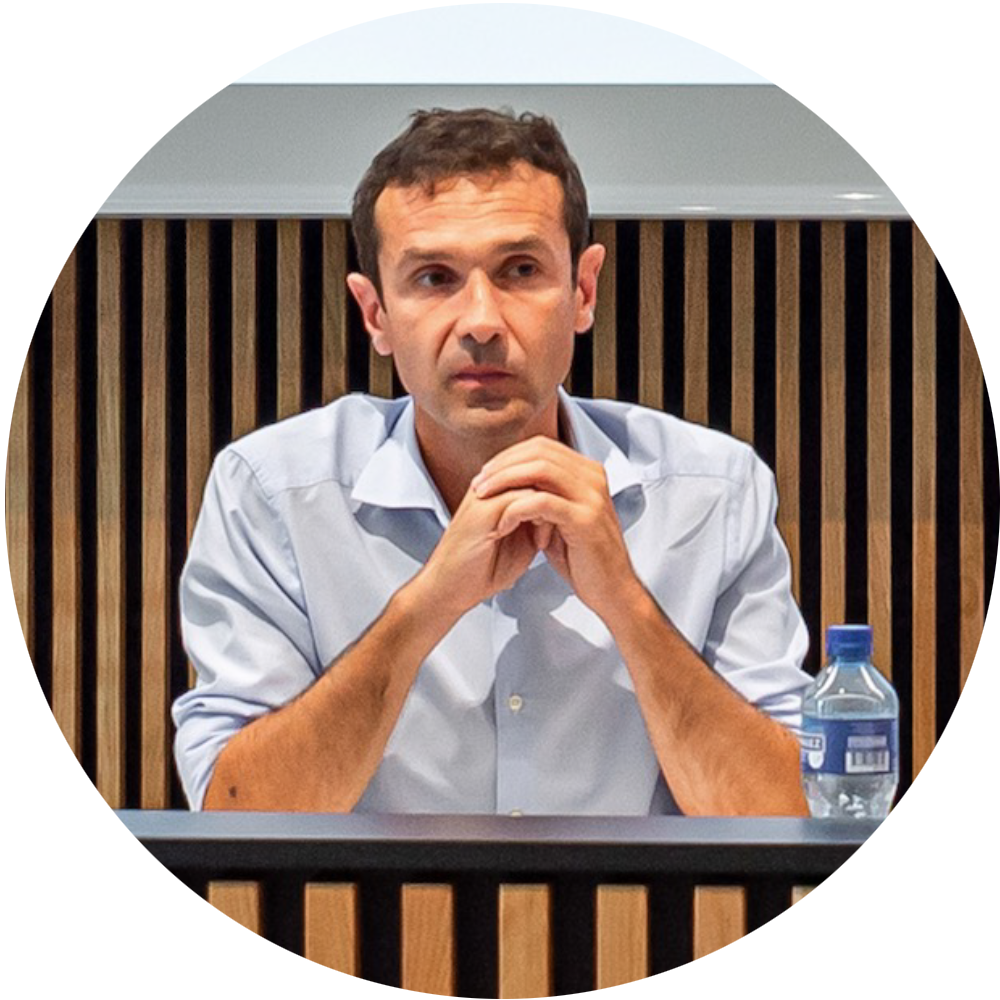
MARTINO LOVATO
Lecturer, University of Macerata, MEM Facilitator
Martino Lovato teaches Arabic language and literature at the University of Macerata. He holds a PhD in comparative literature from the University of Texas at Austin. His research focuses on the Mediterranean as a site of interdisciplinary inquiry between Italian, French, and Arabic literature and cinema. His articles have appeared, among others, in the California Italian Studies journal and The Cambridge Companion to Slavery and Global Literature.
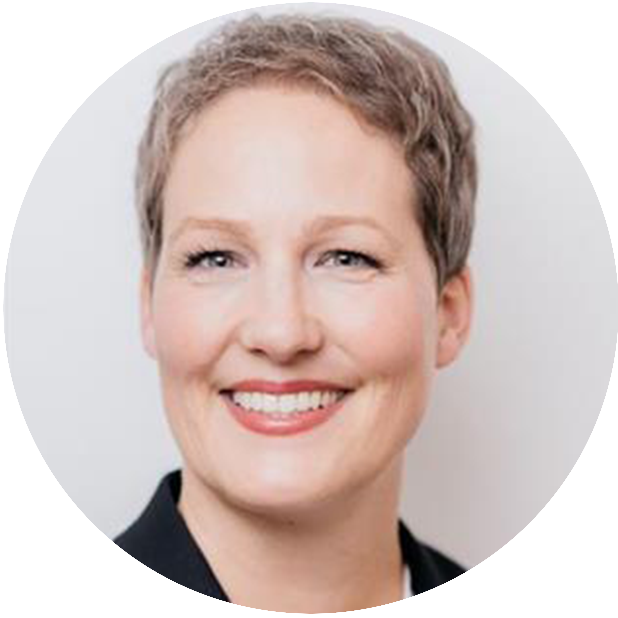
NADINE OLIVIERI LOZANO
Ambassador of Switzerland to Iran
Ambassador Nadine Olivieri Lozano is serving as Ambassador of Switzerland to Iran since 2022.
Olivieri worked as the Foreign Service Officer in the service of the Francophonie from 2005 to 2006. She then worked International Organizations Officer at the United Nations and International organizations office in Bern. She continued her career at the FDFA in 2008 as the Spokesperson of the Swiss Federal Department of Foreign Affairs, before she transferred to the Consulate General of Switzerland in New York where she worked as Deputy Consul General from 2011 to 2015. For the following four years she was Deputy Head of Mission in The Hague. From 2019 to 2022 she was Ambassador and Head of the Division for International Security of the FDFA in Bern.
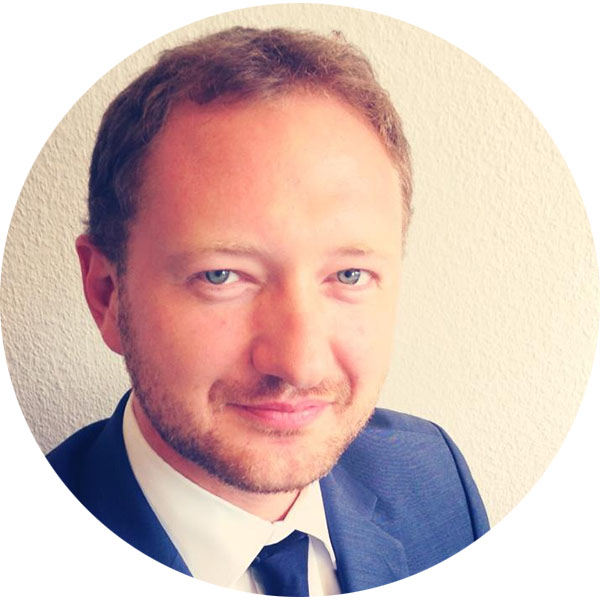
VINCENT PASQUIER
Head of Section Middle East, MENA Division, Federal Department of Foreign Affairs (FDFA)
Vincent Pasquier serves since July 2020 as Head of Section Middle East at the State Secretariat, Federal Department of Foreign Affairs of Switzerland in Bern.
After working for the Swiss Embassy in Damascus and the Temporary International Presence in Hebron, Pasquier joined the Swiss diplomatic service in 2009. He was part of the political section of the Embassy of Switzerland in Washington before working on European Affairs. From 2013 to 2016, he headed the Justice and Home Affairs Section in the Directorate for European Affairs in Berne. From 2016 to 2020, he served as Deputy Head of Mission in the Embassy of Switzerland in Abu Dhabi.
Pasquier holds a Master in Communication Systems from the Ecole Polytechnique Fédérale de Lausanne (EPFL), a Licence in Political Science from the University of Geneva and an MSc in International Relations from the London School of Economics.
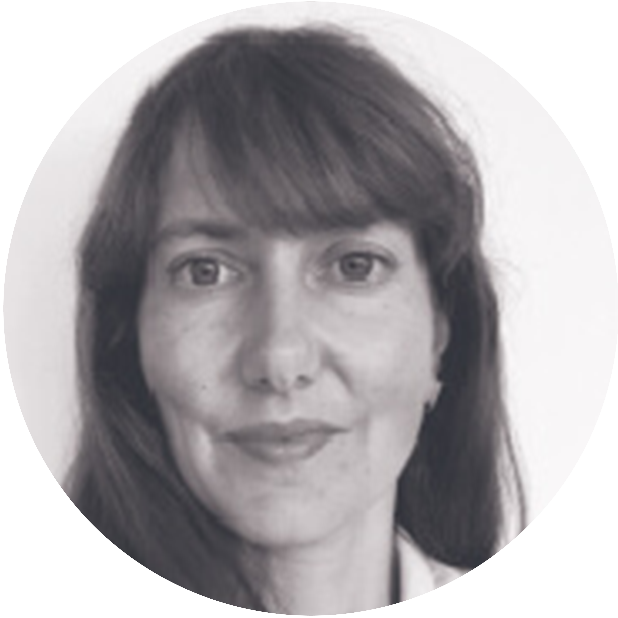
MEDEA SAVARY
Project Manager, MONET 2030, Swiss Federal Office of Statistics
Medea Savary is a Master graduate with a degree in Development Studies from the Graduate Institute of International Studies in Geneva. She is currently working on sustainable development monitoring at the Swiss Federal Statistical Office, as project manager for the MONET 2030 indicator system. She previously worked in the field of emergency communication for the UNHCR in Myanmar and on the Mediterranean refugee crisis, based in Sicily. Medea is interested in finding compelling ways to explain complex issues at the intersection between data, story-telling and visualisation.
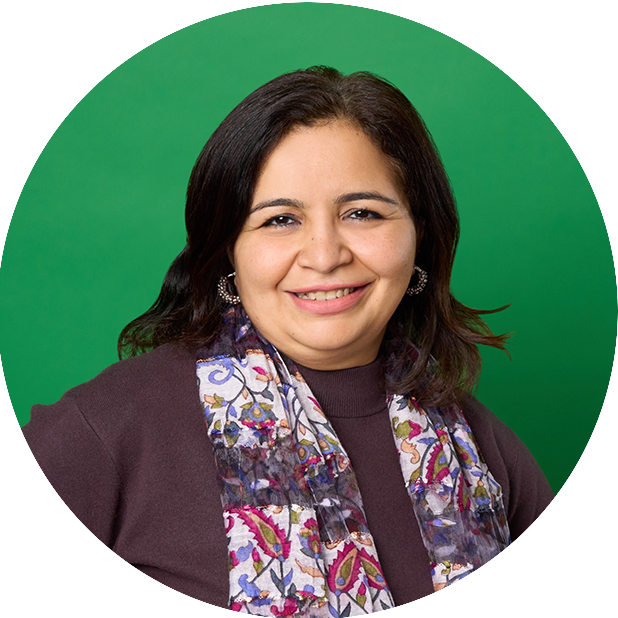
YARA SHAKWY
Atlantic Fellow for Social and Economic Equity, London School of Economics
Yara Shawky is a researcher and civil society professional with more than 20 years of experience in the fields of development, human rights, policy analysis and non-for-profit management in the MENA region. Throughout her career, she worked with various international organizations, funders and bilateral donors to enhance the resilience of civil society organizations to be able serve their communities and advocate for the rights of the voiceless and marginalized. Recently, her work is focusing on programs supporting media reform, freedom of expression, independent cinema, digital rights and impact of technology on society. In parallel to her professional career, Shawky has published many articles and studies in Arabic on cinema and drama that ranged from film reviews, to profiling of prominent Egyptian film directors and analysis of the development of “middle class” representation in Egyptian drama from the 1980s until recently. Shawky is currently exploring the impact of technology on society including creative industries in her capacity as an Atlantic Fellow for Social and Economic Equity with London School of Economics.
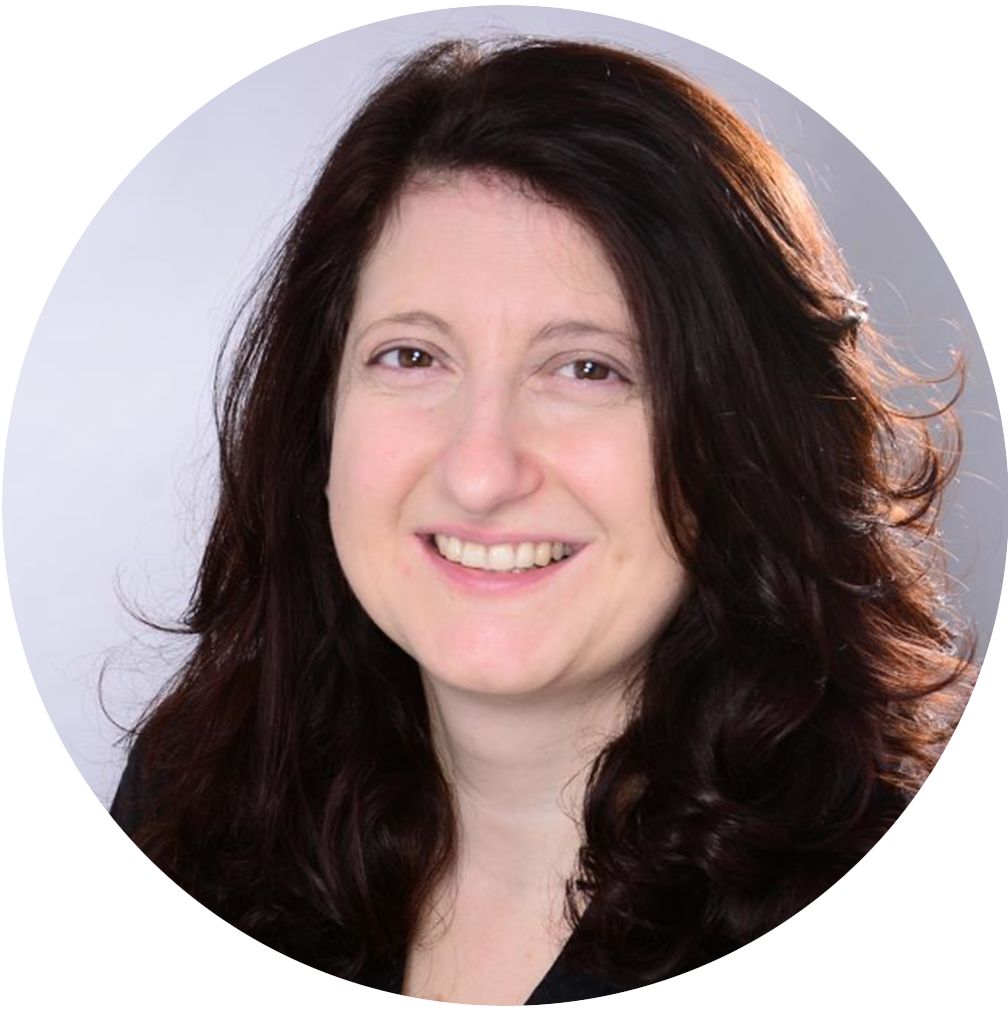
SERENA TOLINO
Professor of Islamic and Middle Eastern Studies and Co-Director, Institute for the Study of the Middle East and Muslim Societies, University of Bern
Serena Tolino is a Professor of Islamic and Middle Eastern Studies and Co-Director of the Institute for the Study of the Middle East and Muslim Societies at the University of Bern, where she also leads the project TraSIS: Trajectories of Slavery in Islamicate Societies. Three Concepts from Islamic Legal Sources, funded by the Swiss National Science Foundation.
Before moving to Bern, she was an assistant professor at the University of Hamburg, a post-doc at the University of Zurich and a visiting fellow at the Program in Islamic Law at Harvard Law School.
She studied in Naples, Halle and Cairo. Her main research interests include the history of gender, sexuality and LGBTQI+ rights in the Middle East, Islamic law, and the history of slavery in the Middle East. Her most recent publications include The Human Body in Islamic Law. Essays in Memory of Agostino Cilardo (ed. with Carlo de Angelo), a dossier of Studi Magrebini/North African Studies (2022) and Sex and Desire in Muslim Cultures. Beyond Norms and Transgression from the Abbasids to the Present Day (ed. with Aymon Kreil and Lucia Sorbera, I.B. Tauris 2021).
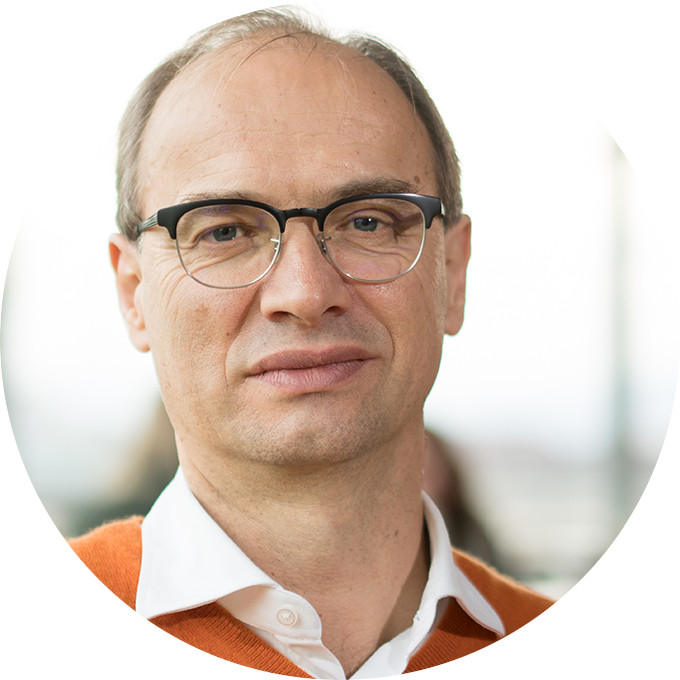
PIO WENNUBST
Permanent Representative, Permanent Mission of Switzerland to the United Nations organisations in Rome
Ambassador Pio Wennubst, an agro-economist specialised in systemic approaches by formation, is an experienced development diplomat with extensive fieldwork. After a period as managing director of a Swiss chemical company, he joined the public sector. Between 1992 and 2008, Wennubst moved first to Nepal to work for the UN and later to different countries, such as Bolivia, Madagascar and Tanzania, to work for the Swiss Agency for Development and Cooperation (SDC).
From 2008 to 2011, he was the deputy permanent representative of the Swiss Mission to the Rome-based UN agencies and from 2010, he was also in charge of reforming the SDC’s Global Programme Food Security. He later joined the Swiss permanent mission to the UN in New York as head of the economic and social development team where he facilitated several resolutions, including the QCPR 2012 in which the United Nations Development System reform is rooted. Subsequently, Wennubst managed for almost six years the Global Cooperation Department as assistant director general of SDC and was in charge of the Swiss support to multilateral funds and programs such as UNDP, Green Climate Fund, UNWOMEN, UNICEF, UNCDF and others.
Currently, Ambassador Wennubst is representing Switzerland at multilateral agencies based in Rome that deal with food security and agricultural development, namely FAO, IFAD, WFP and CFS. In the context of the United Nations Food Systems Summit that took place in New York in September 2021, Wennubst launched the project “Bites of Transfoodmation”, which engages youth to transform food systems through a unifying common vision.
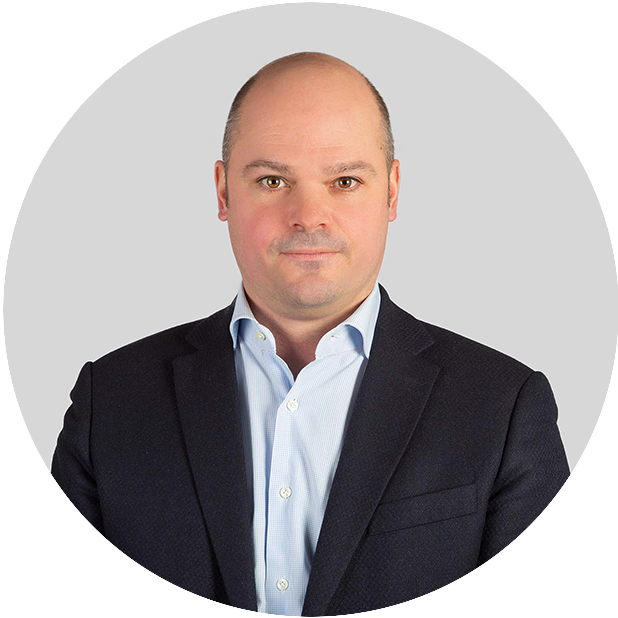
GIOVANNI ZAVARITT
Secretary General, Università della Svizzera italiana
Giovanni Zavaritt (1979) holds a PhD in Political Communication and an Executive Master of Science in Communications Management. He was (2015-2019) Head of Communication at USI, were now is General secretary. Since 2015 he is member of the Board of the Science et Cité foundation.

JEAN-PATRICK VILLENEUVE
Professor and Director, Institute of Communication and Public Policy, Università della Svizzera italiana, Switzerland
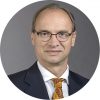
PIO WENNUBST
Permanent Representative, Permanent Mission of Switzerland to the United Nations organisations in Rome, Switzerland
Proiezione Film - Climbing Iran
Climbing Iran
Data: 23 agosto 2023
Ore: 18:00
Luogo: Aula Magna, Campus Ovest, Università della Svizzera italiana
Via Giuseppe Buffi 13, 6900 Lugano
Di Francesca Borghetti
Con Nasim Eshqi
Prodotto da Nanof
Distribuito da Mescalito Film
Italia, Francia | 2020 | 54′
Italiano, inglese
Sub. Italiano, inglese
Una scalatrice iraniana sfida i pregiudizi del suo paese
La vicenda dell’arrampicatrice iraniana Nasim Eshqi, che dopo essersi distinta in diversi sport, come karate e kickboxing, a 23 anni ha iniziato a scalare, rivendicando il diritto di salire in vetta oltre la forza di gravità e le difficoltà di essere donna nel proprio paese.
Sinossi film
Nasim ha mani forti e unghie dipinte con smalto rosa shocking. È una pioniera dell’arrampicata all’aperto in Iran, dove le donne arrampicano su pareti artificiali durante orari stabiliti, solo tra donne. Dopo essere stata una giovane campionessa di diversi sport – dal karate al kickboxing – Nasim ha seguito il richiamo della natura e ha deciso di andare oltre le barriere imposte alle donne del suo Paese, costruendo la propria strada sulle montagne persiane, dove ha aperto una cinquantina di nuove vie.
Il film è il ritratto di una donna straordinaria, determinata a superare le barriere che si oppongono alla sua passione, siano esse fisiche, sociali, psicologiche, geografiche o ideologiche. Impegnata a “cambiare le cose a poco a poco”, porta altre giovani donne sulle pareti di roccia, poco fuori Teheran, insegnando loro come arrampicarsi e diventare indipendenti. Nasim ha un sogno che può diventare realtà: aprire una nuova via sulle Alpi, anche quando raggiungere l’Europa stessa è una vera e propria impresa.
Discussione
Ha seguito una discussione con Federica Frediani (Project Leader MEM Summer Summit), Francesca Borghetti (regista) e Nasim Eshqi (arrampicatrice iraniana).
Candidature
La Call for applications è chiusa.
Il MEM Summer Summit cerca candidati e candidate con le seguenti caratteristiche:
- Con un’età compresa tra i 25 e i 35 anni
- Provenienti dalla regione del Medio Oriente Mediterraneo e dall’Europa e avere un comprovato interesse nella suddetta zona geografica nonché un attivo coinvolgimento nella società
- Lavorano in ambiti diversi tra cui: business, media, diritti umani, organizzazioni governative e non governative, economia, politica, informatica e tecnologia, cultura, arte, intrattenimento, istruzione e ricerca
- Interessati e disponibili a lavorare a progetti con un approccio “transnazionale”, caratterizzato dall’interazione con partecipanti provenienti da tutta la regione
- Con una buona conoscenza della lingua inglese; la conoscenza del francese è un vantaggio
Partecipando al MEM Summer Summit:
- arricchirai il tuo curriculum con un’esperienza di blended learning
- avrai opportunità di networking in un ambiente internazionale, interculturale e interdisciplinare
- ti verrà dato lo spazio per collaborare a proposte-progetti, assistito da un team di professionisti ed esperti
- avrai la possibilità di essere coinvolto in progetti e iniziative, oltre che in convegni e workshop internazionali
- otterrai visibilità internazionale
Modalità di candidatura
I candidati e le candidate devono inviare la domanda di ammissione completa sulla piattaforma YCM e in aggiunta ai formulari da compilare sulla piattaforma, sono richiesti i seguenti documenti:
- Un curriculum vitae aggiornato
-
Una lettera in risposta alle domande (massimo due pagine):
– Cosa significa per te l’affermazione/slogan del MEM “Ciò che ci unisce è più importante di ciò che ci divide”?
– In che modo senti di contribuire a questo?
– Quali sono secondo te i temi più urgenti da discutere nella regione MEM? - Un breve video in inglese per presentarsi e spiegare perché si ritiene essere il candidato o candidata ideale e il contributo che si apporterebbe al Summit (massimo 2 minuti)
Tutti i candidati e candidate saranno informati dei risultati via e-mail, dopo che il comitato di selezione avrà valutato tutte le candidature. Si prega di tenere presente che i posti per il seminario sono limitati.
Borse
Un numero limitato di borse parziali o complete, offerte dagli sponsor, è disponibile per la partecipazione al MEM Summer Summit 2023. Le borse complete coprono i costi di partecipazione e alloggio, e le spese di viaggio; le borse parziali coprono le spese di partecipazione e alloggio. La richiesta di borsa deve essere fatta sulla piattaforma YCM online.
